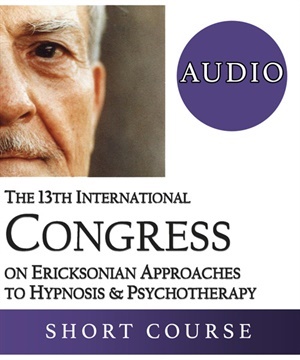IC19 Short Course 20 - How to Take the Next Affective Step for Promoting Resilience - Bardia Monshi, PhD
- Average Rating:
- Not yet rated
- Topic Areas:
- Short Courses | Affect | Psychotherapy | Therapist Development
- Categories:
- Erickson Congress | Erickson Congress 2019
- Faculty:
- Bardia Monshi, PhD
- Course Levels:
- Master Degree or Higher in Health-Related Field
- Duration:
- 1 Hour 26 Minutes
- Format:
- Audio Only
- Original Program Date:
- Dec 12, 2019
- License:
- Never Expires.
Description
Description:
Effective therapy, or coaching, is touching and moving clients. As professionals, we are providing an emotional service because all of our clients’ problems have to do with emotional self-regulation. Therefore, to make therapy effective the impact must be affective!
I will first provide an overview of the Person-System-Interactions theory of the personality-researcher Julius Kuhl. It represents a theoretical foundation for thinking about specific ways of self-regulation. Prof. Kuhl defined four interacting subsystems and specific interplays, e.g. the interplay between “self-confrontation & self-calming” or the the interplay between “self-motivation & self-braking”. How a person manages the interplay between these subsystems results in different ego states.
Coaching and therapy can be regarded as a service to enhance the client’s affective self-regulation, improving their resilience. That is why secondly we will take a look at resilience from an affective and process-oriented point of view using the PSI-theory. Viennese humor, short movies and case examples will make this course an affective journey, too.
On the basis of this knowledge we can:
- profile our clients concerning access to their different systems of personality,
- strategically think about the next affective step for our clients and also,
- figure out which specific method might be best for promoting resilience.
Educational Objectives:
- Define the 4 subsystems of the PSI-Theory.
- Create a profiling of clients with the PSI-Theory.
- Utilize the PSI-Theory to plan the next affective step for enhancing resilience.
*Sessions may be edited for content and to preserve confidentiality*
Credits



